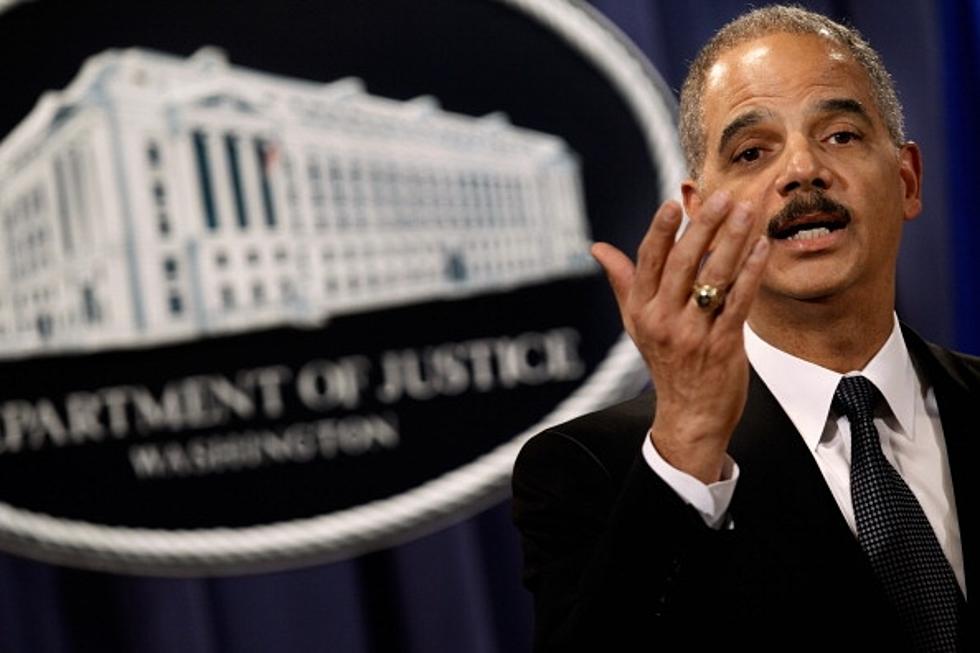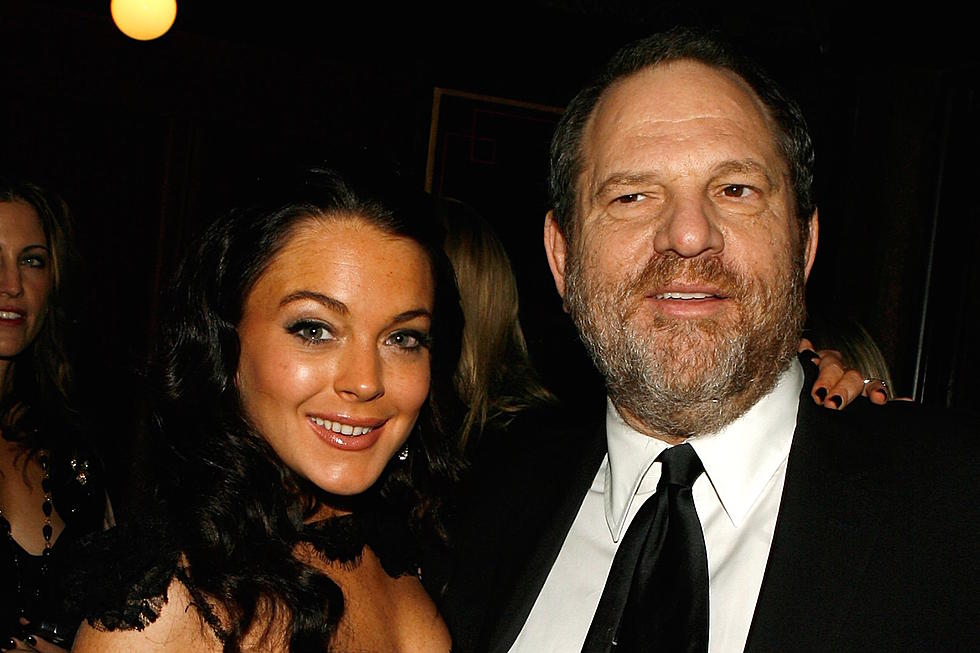
Chad’s Morning Brief: DOJ Preparing Clemency Requests for Thousands of Federal Inmates, The New Rick Perry, and Other Top Stories
Here is your Morning Brief for the morning of April 22, 2014. Give me your feedback below and tune in to The Chad Hasty Show for these and many more topics from 8:30 to 11am. Remember, you can listen online at KFYO.com or on your iPhone/Android with the radioPup App.
Important Election Dates:
Early Voting for City and School Board Election: April 28 – May 6
Election Day for City and School Board: May 10
Early Voting for GOP and Dem. Primary Runoff: May 19 – May 23
Election Day for GOP and Dem. Primary Runoff: May 27
Clemency
The Obama administration could be preparing to release many non-violent drug offenders from Federal prison. According to the Washington Post, the Department of Justice is preparing for thousands of clemency requests.
The Obama administration is beginning an aggressive new effort to foster equity in criminal sentencing by considering clemency requests from as many as thousands of federal inmates serving time for drug offenses, officials said Monday.
The initiative, which amounts to an unprecedented campaign to free nonviolent offenders, will begin immediately and continue over the next two years, officials said. The Justice Department said it expects to reassign dozens of lawyers to its understaffed pardons office to handle the requests from inmates.
“The White House has indicated it wants to consider additional clemency applications, to restore a degree of justice, fairness and proportionality for deserving individuals who do not pose a threat to public safety,” Attorney General Eric H. Holder Jr. said Monday. “The Justice Department is committed to recommending as many qualified applicants as possible for reduced sentences.”
Holder has announced a series of initiatives to tackle disparities in criminal penalties, beginning in August when he said low-level, nonviolent drug offenders with no connection to gangs or large-scale drug organizations would not be charged with offenses that call for strict mandatory sentences. He has traveled across the country to highlight community programs in which nonviolent offenders have received substance-abuse treatment and other assistance instead of long prison sentences.
Underlying the initiatives is the belief by top Justice Department officials that the most severe penalties should be reserved for serious, high-level or violent drug traffickers. On April 10, after an endorsement from Holder, the U.S. Sentencing Commission — the independent agency that sets sentencing policies for federal judges — voted to revise its guidelines to reduce sentences for defendants in most of the nation’s drug cases.
In the meantime, however, thousands of inmates are still serving federally mandated sentences that imposed strict penalties for the possession of crack cocaine. The Fair Sentencing Act, which President Obama signed in 2010, reduced the disparity between convictions for crack and powder cocaine, and Obama has called sentences passed under the older guidelines “unduly harsh.” The law also eliminated the five-year mandatory minimum sentence for the simple possession of crack cocaine.
“There are still too many people in federal prison who were sentenced under the old regime — and who, as a result, will have to spend far more time in prison than they would if sentenced today for exactly the same crime,” Holder said Monday. “This is simply not right.”
For about two decades, strict sentences were imposed on offenders convicted of trafficking or possession with intent to traffic crack cocaine in the belief that the substance was more addictive than powder cocaine, inexpensive and linked to violent crime.
But in 2002, the sentencing panel found that sentencing guidelines were based on misperceptions about the relative dangers of crack cocaine compared with other drugs. The commission also found that the disparity had created a racial imbalance in which harsh sentences had been disproportionately imposed on minorities, particularly African Americans.
In December, Obama commuted the sentences of eight inmates serving long prison terms for crack-cocaine convictions handed down before the 2010 law was passed. Six of the eight were serving life sentences, including two who had not previously been convicted. Each of the eight had served more than 15 years for a crack offense.
Under the 2010 law, the same people would have received shorter prison terms and, in some cases, completed their sentences.
Rick Perry's Makeover?
POLITICO out with another story about Governor Rick Perry's so-called "makeover". The article by Katie Glueck points to Perry's new-look, new sound, and his swagger.
It’s impossible to exorcise the memories of 2012. But Rick Perry is going all out to present a new and improved version of himself — the swaggering big-state governor of old, with a dash of seasoned wise man thrown in.
In the early months of 2014, his political team has booked him on one high-profile program after another: He’s joked with Jimmy Kimmel, charmed the “Morning Joe” crowd and wowed the Conservative Political Action Conference. The Texas Republican’s hip glasses are still earning approving media mentions long after he first donned them. And the possible 2016 candidate has spent time with early-state types in Iowa (and in late 2013, South Carolina), while also mixing it up in more exotic locales from Davos to Palau.
His carefully choreographed, so far gaffe-free reintroduction has two overriding goals: First, to remind voters of the Rick Perry who is the longest-serving governor in Lone Star State history, a political juggernaut who won 10 straight elections before stumbling in the national spotlight. And second, to get voters to forget, or at least not dwell on, his disastrous 2012 presidential bid.
“Where I have noticed it profoundly is in the last few weeks, the national TV appearances, whether he’s been on a number of Fox shows or Jimmy Kimmel and some of the others, he just seems like a very confident, upbeat and articulate spokesman for conservative policy and values,” said Ray Sullivan, a former Perry presidential campaign spokesman and chief of staff who joined the governor’s ranks in 1998. He has his own public-affairs firm now but is still close with the office. “He seems to be enjoying himself more today than any time I can remember.”
Smooth TV appearances aside, Perry has a ways to go to demonstrate he’s equipped to be a credible national candidate after his campaign imploded so publicly last time. He continues to be dogged by his infamous “oops” moment, when he forgot on national TV the third federal agency he said he wanted to eliminate. His relatively moderate views on immigration, anathema to many in the GOP base, haven’t changed. And the 2016 GOP primary field is bound to be more formidable than the relatively weak cast of contenders Perry couldn’t overcome two years ago.
“After the 2012 race, the bar’s pretty low,” said Rob Stutzman, a California-based Republican consultant. If Perry can exceed expectations, Stutzman continued, “The opportunity is there, but the margin for error is small. He needs to outperform those perceptions immediately and dramatically or he looks like the same guy in ’12 that a lot of people were surprised about.”
Back home, there are whiffs of a potential problem for Perry, who recently hired a prominent defense attorney to represent him in an investigation into his funding veto for a state public-integrity unit. A grand jury was seated for the case last week, though it doesn’t appear likely that a ruling will be made anytime soon. Democratic groups have seized on the issue, and it is increasingly garnering attention in Texas and beyond, but Perry is cooperating with the probe and has denied wrongdoing.
Politically speaking, Perry’s allies argue that there will be two big differences between 2016 and 2012, should he run: He would be in better health. They note that his long recuperation from back surgery impeded his performance last time. And he would be much better-prepared than last time, when he entered the race late.
“There is no question he wasn’t ready when he jumped in the race in 2012; [after] he had back surgery, it didn’t go well,” said powerful Republican National Committeeman Henry Barbour. Now, “He’s healthy, he’s much better prepared, and he seems very comfortable in interviews and in articulating his views on what needs to happen.
Barbour, of Mississippi, is part of a small cadre of advisers that has been working for months to help prepare Perry for a possible bid. The group, a mix of Texas and national Republicans, is aiming to ensure that he’s making connections around the country and meeting with influential domestic and foreign policy thinkers to bolster his expertise in those areas.
The conversations are spearheaded by Jeff Miller — separately, the head of Americans for Economic Freedom, an independent group supportive of Perry and red-state governing policies — and also include Perry 2012 campaign manager Rob Johnson, and Terry Nelson and Rob Jesmer of FP1 Strategies, among others. Deirdre Delisi, a longtime Perry ally who has also served as his chief of staff, weighs in on political discussions on an informal basis, she said.
You can read the rest of the article by clicking on the link above. Perry so far has had a great re-introduction to the political world. It's early, but if he can keep this up and have good performances in debates, I could see where Perry becomes a favorite.
Other Top Stories:
These and many more topics coming up on today’s edition of The Chad Hasty Show. Tune in mornings 8:30-11am on News/Talk 790 KFYO, streaming online at kfyo.com, and now on your iPhone and Android device with the radioPup App. All guest interviews can be heard online in our podcast section after the show at kfyo.com.
More From News/Talk 95.1 & 790 KFYO




![Alice Stewart Not Losing Confidence In FBI And Department Of Justice Over Nunes Memo Contents [INTERVIEW]](http://townsquare.media/site/192/files/2018/02/Devin-Nunes-GettyImages.jpg?w=980&q=75)


![Mackowiak: This Is Last Chance For Repeal Of Obamacare [INTERVIEW]](http://townsquare.media/site/192/files/2017/09/hqdefault2.jpg?w=980&q=75)
![Chad Hasty: Hillary Clinton Calling For Coup [VIDEO]](http://townsquare.media/site/192/files/2017/09/Hillary-Clinton-Getty-Images.jpg?w=980&q=75)
